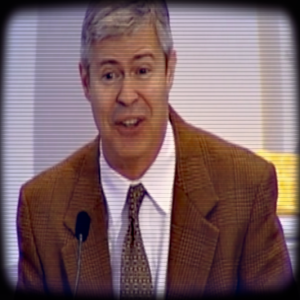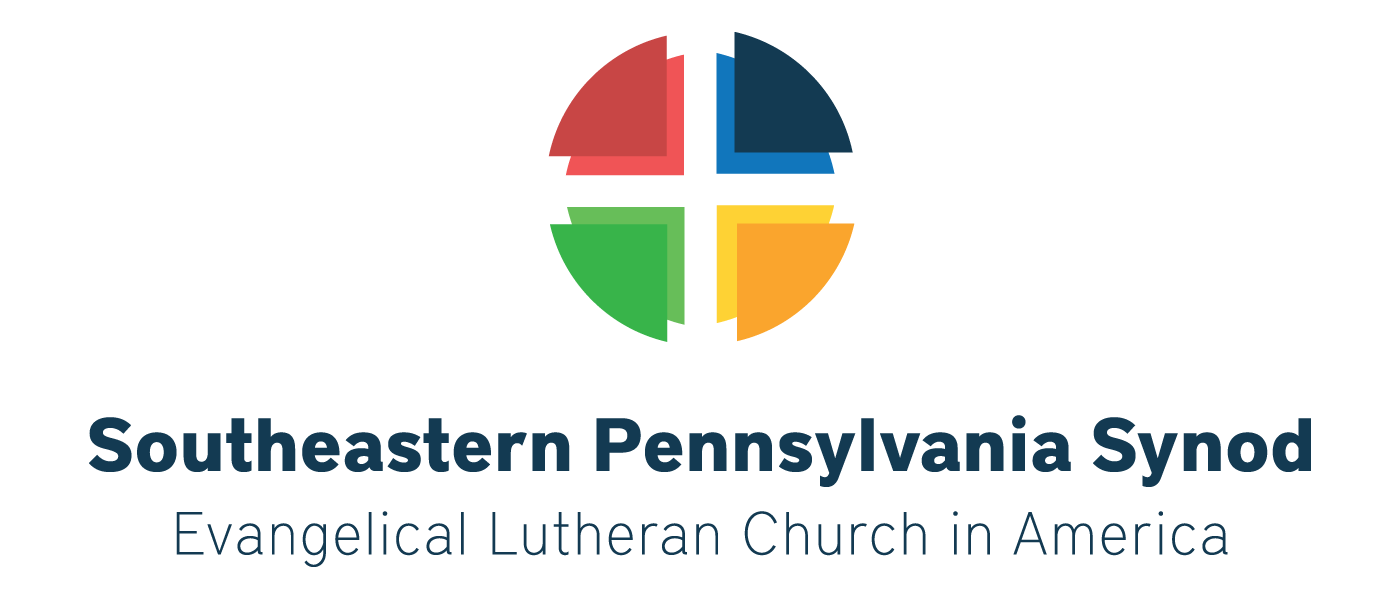May 9, 2014 in 2014 Assembly, Assembly, Communications, Congregations, Equipping, Faith in action, Mission, Resources
Moving Toward God’s Preferred Future

“Nobody changes before they are ready,” the Rev. Dr. David Lose, consultant with Kairos & Associates, told the Assembly. “This body is ready, and excited, and eager to live into God’s preferred future.”
Lose reported on a wide-ranging survey of synod leaders, including clergy, congregation council members and other lay leaders, conducted this spring to gauge the landscape our Synod operates in. The survey results show that there is a deep consensus that the Synod needs to operate in new ways. Just 1 percent of respondents said that “no change” is required, while 99 percent report their preference for change.
As the church has moved out of the center of society, with people no longer feeling a duty to attend and with many other cultural narratives on a par with Scripture, church leaders can feel as if they are constructing an airplane while it is in flight, Lose said. He sees this anxiety as he travels the country as a consultant, a professor of preaching at Luther Seminary, and now as nominee for president of the Philadelphia seminary. Across denominations in the US, church leaders are asking tough questions as they grapple with a longstanding trend of decline.
 In our overcommitted, consumerist culture many people are stretched thin and wondering about the value of church commitment. As an example Lose told the story of a man that one of his colleagues approached on a plane with the opener: “Do you go to church?”
In our overcommitted, consumerist culture many people are stretched thin and wondering about the value of church commitment. As an example Lose told the story of a man that one of his colleagues approached on a plane with the opener: “Do you go to church?”
“We’ve always gone to church, but we’re thinking about stopping,” said the man, a father of two. With all the commitments and opportunities facing them at school, work and church as well as in their social lives, the family felt overwhelmed and on the verge of burnout.
So one Sunday after church, before the dad left on a business trip, they had a family meeting, Lose said. “They made a list of all the opportunities and obligations they had and evaluated each one on the basis of how it helped them be the kind of people and family they wanted to be.
“After an hour-and-a-half of talking, they made their decisions,” Lose said. “Girl Scouts was in. Church was out.”
While scouting made a visible difference in their daughter’s life, “they had a harder time drawing meaning from their participation in church,” Lose said.
As millions of individuals and families have this conversation in their own homes, essentially every faith tradition has seen declines in attendance and giving in the last decade. For mainline chuches, the decline has its roots in the early 1970s, Lose said.
“This gives many of us feelings of distress, concern, anxiety and shame,” said Lose. “We remember a different church, one that was bigger, growing and expanding. We aren’t sure what to do, but we feel bad.
“One thing I want to say clearly: This trend of decline and loss is not your fault.” Lose said. “It is due to massive cultural change, greater than we have seen before in the history of the U.S.”
This significant change is hard, but it offers the possibilities of resurrection if the church and its leaders adapt and learn to thrive in this new environment.
Watch David Lose’s Presentaton
Faithful Witness in Changing Times from on Vimeo.
A loss of cultural support for attending church is pervasive. “It used to be a cultural assumption,” said Lose. In fact, much of faith was taught in schools, but in an increasingly diverse, multicultural country, that is no longer possible.Massive cultural changes have broken like waves across the country, impacting participation in faith communities and the way we all think about that participation.
“There is a decline in the culture of duty,” in which people attended and supported church because they viewed it as an obligation, he said. “Communal capital is at an all-time low. People don’t join things.”
The Sabbath as sacred has nearly disappeared. There is no more 40-hour workweek; no weekend you can count on. Even on vacation, you cannot unplug totally. If you do, you may dread returning to hundreds of emails.
“And we are drowning in a sea of stories,” he added. “At one point, the Bible and Christian culture was the primary story undergirding our culture. Now it is just one of a number of stories.” This includes the advertising messages that are everywhere. “People find more meaning from the labels they wear than the churches they attend.”
“It is a cultural milieu,” Lose said. “No wonder so many of us feel that we’ve lost our compass.”
Lose then shifted the discussion from the problem to the possible solution.
“We experiment and innovate with faith and confidence that the Lord continues to lead us and has blessed us with the insight, faith and discernment of the His call here and now,” even though the culture and situation have changed and it is confusing being in congregational ministry today.
Kairos & Associates has been consulting with Lutheran communities for more than 25 years, raising more than $1.4 billion. Discerning the mission and vision of today’s synod is essential.
Needs and goals were determined by surveying members of the synod staff and various congregations and through bishop’s summits. “There is a consensus around strengthening our Lutheran identity,” Lose said. “What does it mean to be faithful Lutherans at this time, in this world?”
This Mission Advancement Campaign (which was overwhelmingly approved by the Assembly Saturday) is an opportunity to clarify the role of the synod, knowing that those who participate are more committed and energized. Finally, synods lead by equipping congregations and leaders.
“We look to our Synod as a partner to keep our congregations strong and healthy; vibrant communities of faith,” he said.
This is a significant paradigm shift, Lose said. Just as patients who once relied on a physician for everything now take responsibility for their health through diet, exercise, etc., congregations can no longer expect cures from the Synod. Instead the Synod can equip leaders to take action in this new environment and take responsibility for congregational health.
Like the men on the road to Emmaus in the Bible story whose words, “But we had hoped …” spoke of a nonexistent future, “Many of our faith communities get caught up in the grief of seeing their imagined future, knowing it won’t be.”
Our imagined future is not always what God has planned for us, however. When you open your hands to do God’s work, you have to let some things go.
“To receive the future we hadn’t imagined—but that God is already planning for us and drawing us into—makes us nervous and anxious,” said Lose. But remember that the earliest Christians were called “People of the Way” and knew they were on a journey and the Spirit wasn’t done with them. There is always more to learn and discover.
“The Church has equipped us with a community of saints to walk together into the future God has imagined.” – Brenda Lange with Bob Fisher

